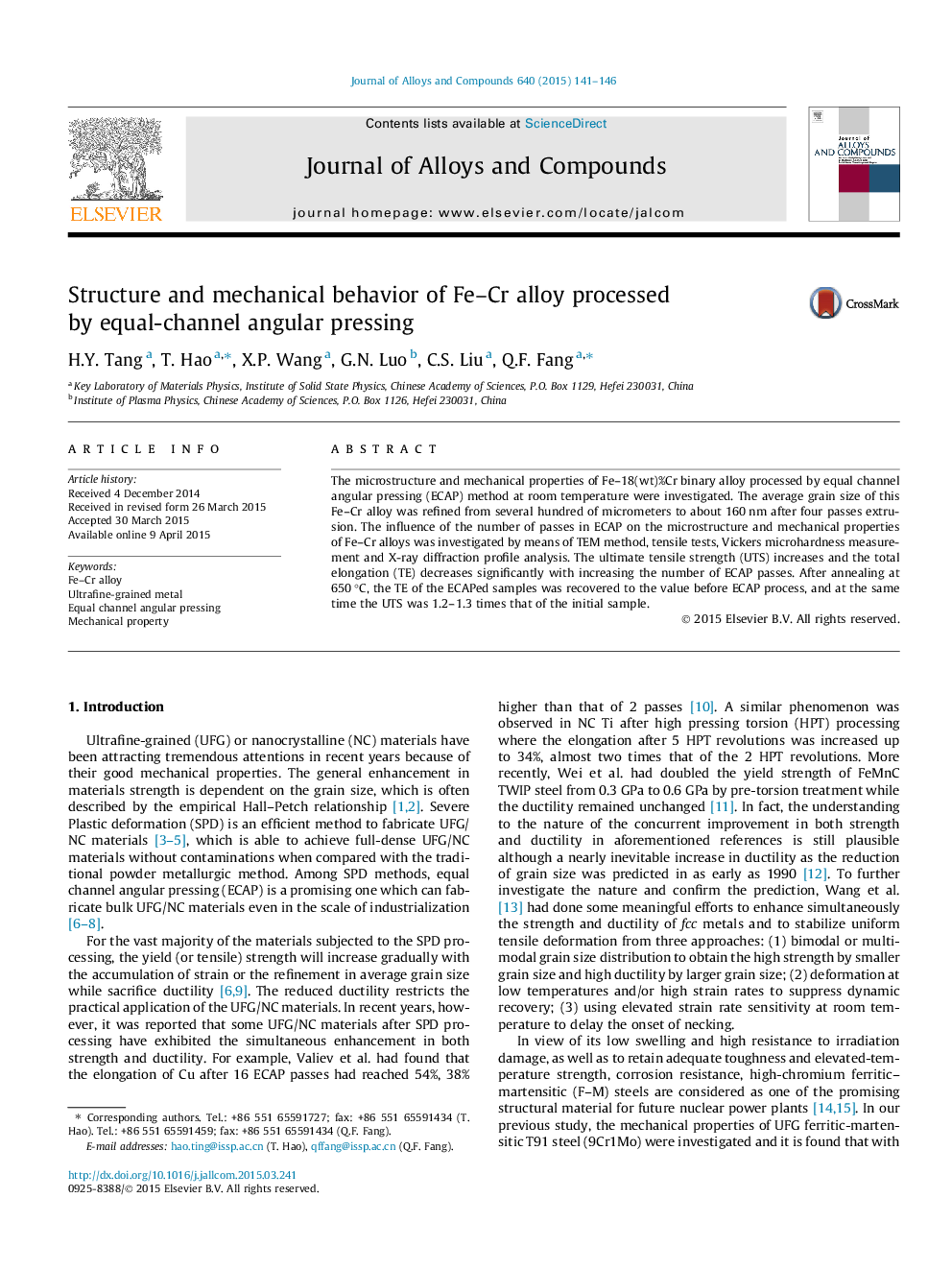| Article ID | Journal | Published Year | Pages | File Type |
|---|---|---|---|---|
| 1608951 | Journal of Alloys and Compounds | 2015 | 6 Pages |
•The grain size of Fe–Cr alloy can be refined to about 160 nm via ECAP method.•The strength increases monotonously with increasing the number of ECAP passes.•The total elongation (TE) decreases substantially due to ECAP processing.•The lost TE can be regained by an annealing in keeping with a higher strength.
The microstructure and mechanical properties of Fe–18(wt)%Cr binary alloy processed by equal channel angular pressing (ECAP) method at room temperature were investigated. The average grain size of this Fe–Cr alloy was refined from several hundred of micrometers to about 160 nm after four passes extrusion. The influence of the number of passes in ECAP on the microstructure and mechanical properties of Fe–Cr alloys was investigated by means of TEM method, tensile tests, Vickers microhardness measurement and X-ray diffraction profile analysis. The ultimate tensile strength (UTS) increases and the total elongation (TE) decreases significantly with increasing the number of ECAP passes. After annealing at 650 °C, the TE of the ECAPed samples was recovered to the value before ECAP process, and at the same time the UTS was 1.2–1.3 times that of the initial sample.
